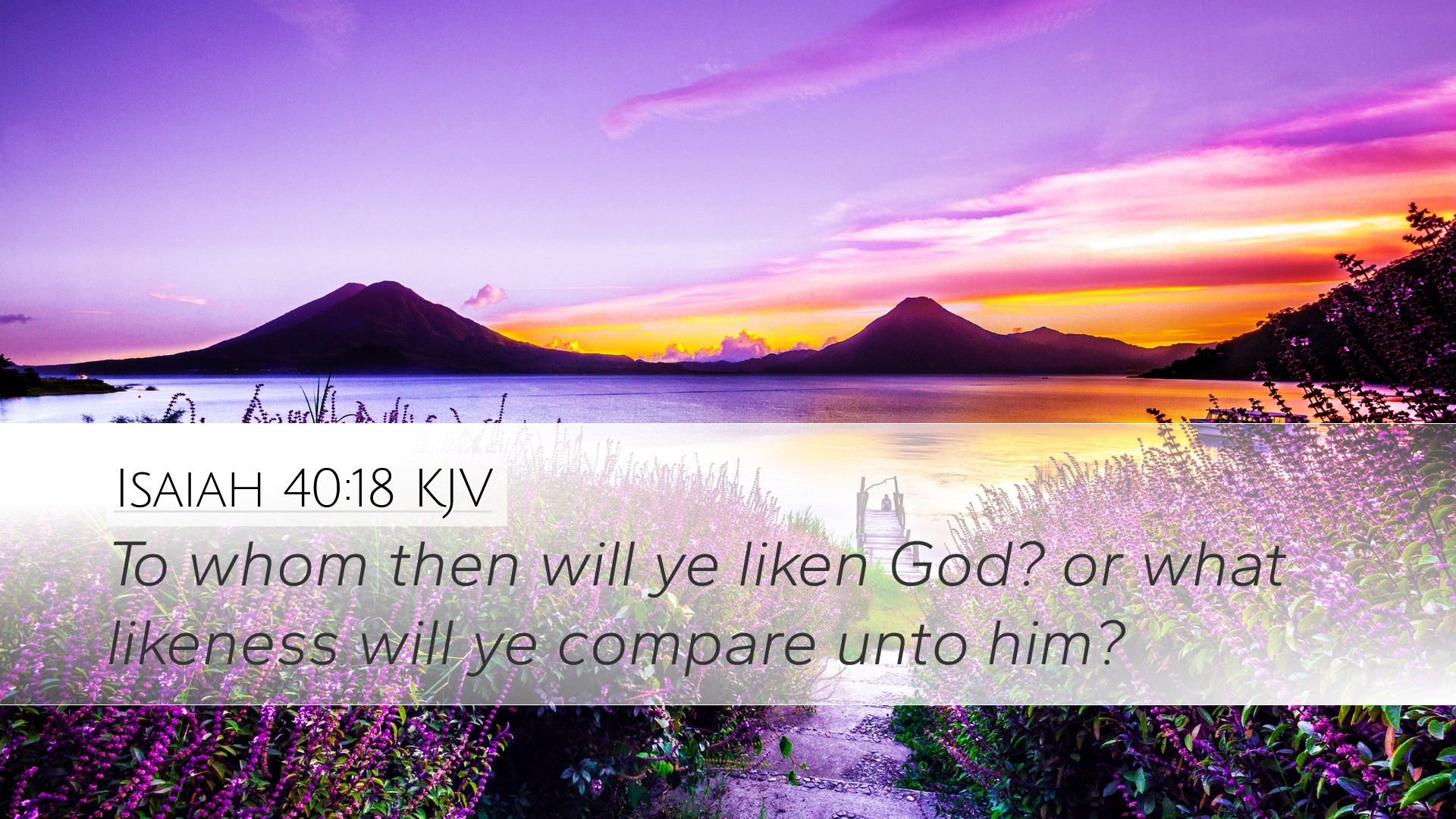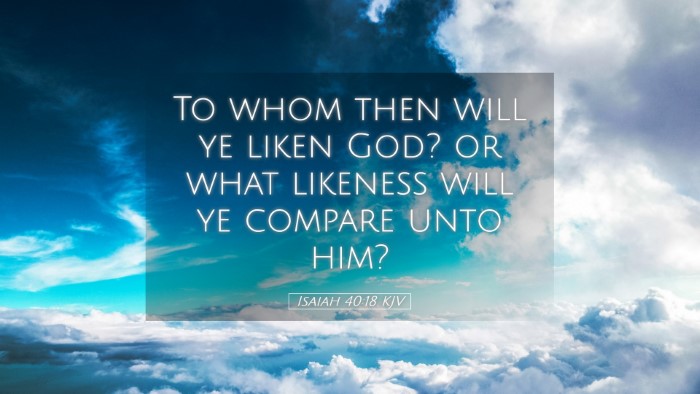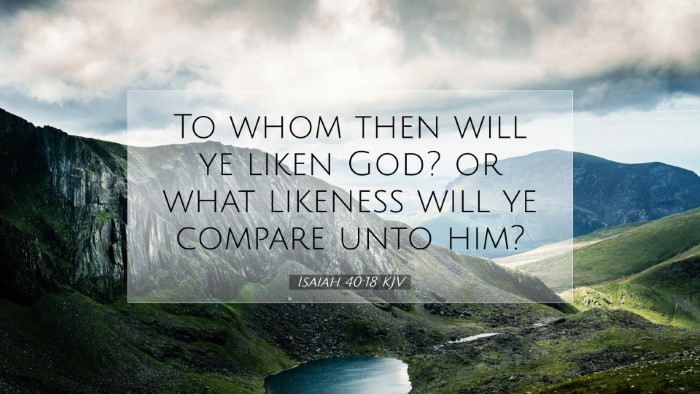Isaiah 40:18 - Commentary and Insights
Verse Text: "To whom then will you liken God? or what likeness will you compare unto him?" (Isaiah 40:18, KJV)
The 40th chapter of Isaiah serves as a majestic introduction to a new section of the book, emphasizing the greatness of God in contrast to all earthly powers and idols. In verse 18, we find a profound challenge posed by the prophet: the quest to compare God, the Creator, to anything in creation. This verse sets the stage for a deeper understanding of God's transcendence and the futility of idolatry.
Contextual Significance
This chapter opens with a message of comfort and hope to the people of Israel, who were suffering in exile. The prophet urges them to recognize the incomparable nature of God. The rhetorical question in this verse underscores the inadequacy of human comparisons to the divine. As we delve into the commentaries, we can better appreciate its implications.
Matthew Henry's Commentary Insights
Matthew Henry highlights that this verse serves as a stark reminder of God's majesty. He notes that it questions the validity of any image or concept that mankind might conjure to represent the Almighty. Henry emphasizes that attempting to liken God to anything diminishes His grandeur, suggesting that no material representation can capture His essence. He writes:
"Whenever we attempt to make a likeness of God, we reduce His infinite nature to the finite, and this is an error mankind often falls into."
Henry stresses the importance of recognizing the uniqueness of God's attributes, particularly His omnipotence and sovereignty, which stand in stark juxtaposition to human limitations.
Albert Barnes' Perspective
Albert Barnes, in his commentary, elucidates that the rhetorical nature of the question in Isaiah 40:18 serves to evoke contemplation about God's supreme and singular nature. He portrays this inquiry as a call to the readers, encouraging them to reflect on the vastness of God's attributes and the folly of idolatrous practices. His insights include:
- The Ineffability of God: Barnes remarks on God's nature being beyond human understanding and representation. He argues that God's essence is uniquely divine and cannot be compressed into human symbols.
- Contrast with Idols: He highlights the futility of creating idols, as they are mere creations of human hands and cannot compare to the Creator Himself.
Barnes concludes that the essence of worship must be directed toward an understanding of who God is, rather than any attempt to confine Him within created forms.
Adam Clarke's Analysis
Adam Clarke’s commentary provides a detailed exploration of the cultural and theological implications behind the verse. Clarke posits that:
- Human Limitations: He argues that humans often seek tangible representations of the divine due to their limited understanding and the need for concrete symbols in worship.
- God’s Sovereignty: Clarke emphasizes that God's sovereignty surpasses all human concepts and understanding, meriting reverence and worship beyond anything that could be fashioned.
He encourages readers to grasp the enormity of God’s presence rather than confining Him to human expectations or perceptions.
Theological Implications
This verse conveys several critical theological concepts that resonate through the ages:
- Transcendence of God: The verse reinforces the idea that God exists beyond the limitations of the created order. His attributes are unique and fundamentally different from anything we encounter in the created world.
- Idolatry and Its Futility: Isaiah’s question drives home the point that any attempt to create an image of God diminishes His glory. This has far-reaching implications for worship and the theological understanding of the nature of God.
- The Call to True Worship: The absence of a suitable likeness urges believers to approach God with a mindset oriented toward spiritual truth rather than material substitutes.
Conclusion
Isaiah 40:18 serves as a powerful reminder of God’s unparalleled greatness. The insights from Matthew Henry, Albert Barnes, and Adam Clarke encourage deeper engagement with the text, prompting reflections on the nature of God in a world filled with distractions and misconceptions. As scholars, theologians, and devout practitioners, it is crucial to embrace the challenge posed by this verse: to seek God authentically and recognize that no likeness can adequately represent His divine majesty.


